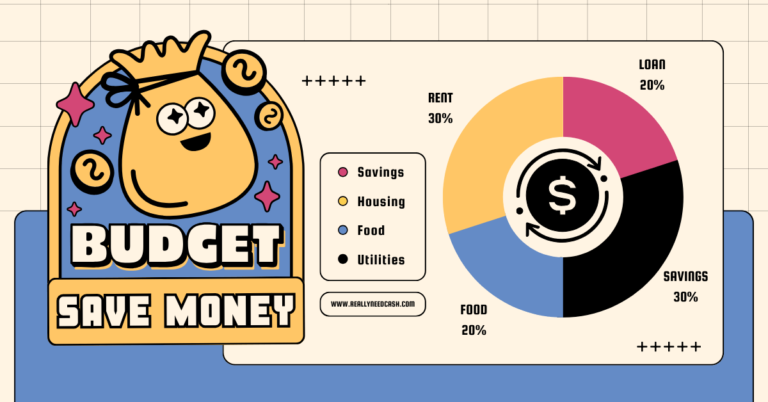To Make Money as Scopist Editing Court Files: get certified in legal transcription, set up an efficient home office, sign up on freelance platforms, market directly to firms, determine competitive rates, and use software to complete jobs on deadline. Use transcription software to efficiently complete jobs within client deadlines.
How to Make Money as Scopist Editing Court Files?
Step 1: Get Scoping Certification
Complete training to learn the skills needed to properly edit legal transcripts. Consider getting certified through programs like the American Association of Electronic Reporters and Transcribers (AAERT). Certification demonstrates your abilities to potential clients.
Step 2: Set Up Your Home Office
Have a dedicated workspace with a computer, high-speed internet, and transcription software. Consider a dual-monitor setup for efficiency. Make sure your setup complies with legal transcription industry standards.
Step 3: Find Work Through Freelance Platforms
Sign up on platforms like Upwork, Freelancer, or TranscribeMe to gain access to remote scoping jobs posted by court reporting agencies and law firms. Build your profile to attract clients.
Step 4: Market Directly to Court Reporting Firms
Contact court reporting businesses in your state and nearby states to offer your services. Send a cover letter highlighting your experience, certification, and competitive rates. Follow up to secure ongoing work.
Step 5: Set Your Rates and Payment Terms
Determine fair hourly or per-page rates based on your speed and skills.
Step 6: Manage Your Scoping Business
Use transcription software to efficiently complete jobs within client deadlines. Track time and invoices using accounting apps. Network in the industry to get referrals and take on more work over time.

What is Scopist’s?
A scopist is a professional who edits court transcripts created by court reporters. They play an essential role in the legal field by ensuring that these transcripts are accurate, meticulously reviewed, and well-formatted.
To become a successful scopist, you need to understand the nature of the job, the skills required, and the potential income you could earn.
Court reporters use steno machines to create real-time transcriptions of court proceedings. These initial transcripts often contain errors and require editing, which is where scoping comes in. A scopist uses specialized software, alongside audio recordings of the proceedings, to correct any errors, ensure proper grammar, and apply correct formatting. Knowing what is scoping, you can identify the necessary skills to excel in this work-from-home career.
To become a scopist, you need to possess a strong command of the English language, impeccable grammar skills, and a firm grasp of legal vocabulary. Training courses are available to help you develop these skills, and joining organizations like the National Court Reporters Association (NCRA) can provide resources, networking opportunities, and guidance on establishing your business.
How to Become a Scopist?
Here’s a quick summary of what you should know and consider as a scopist:
- Scoping is editing court transcripts to ensure accuracy, grammar, and formatting
- Required skills involve a strong command of English, legal vocab, and editing ability
- Scopist training courses and organizations, such as NCRA, are helpful resources
- Scopists are typically paid per page, with average rates of $1 to $1.50 per page
By understanding the role of a scopist, acquiring essential skills, and learning how to market yourself in the industry, you can begin paving the way for a rewarding work-from-home career that offers income potential.
Be proactive, committed, and prepared to continually develop your skills to stay competitive in the scopist job market.
Scopist Average Salary
Scopist jobs are typically pay-per-page, with average rates ranging from $1 to $1.50 per page. Your income as a scopist depends on the volume of work you take on and your efficiency in editing the transcripts. A full-time scopist could earn between $32,254 and $53,085 annually, while a part-time scopist (working 25 hours a week) could earn around $25,000.
Scopist’s Essential Tools and Techniques
As a scopist, it is crucial to equip yourself with essential tools and techniques to effectively edit court files and make money from home. In this section, we’ll discuss some key components you need to get started.
Computer: First and foremost, invest in a reliable computer with a stable internet connection. This is where you’ll perform the majority of your work. Keep your computer updated and well-maintained to ensure smooth running.
Internet Scoping School: Acquiring the right skills is essential for your success. Enroll in a reputable online scoping program, like Internet Scoping School, to learn steno language, CAT software, proofreading, and other necessary techniques.
CAT software: Computer-Aided Transcription (CAT) software is a must-have for every scopist. These programs translate steno language into readable text, making your job as an editor much more manageable. Some popular options include Eclipse and Case CATalyst.
Foot Pedal: A foot pedal is a device that controls audio playback, freeing up your hands to edit the text while listening to court proceedings. It helps you efficiently find and fix discrepancies between audio files and transcripts.
Reference Books: Equip yourself with reference books such as grammar guides, specialized dictionaries, and legal terminology resources. These will come in handy when you encounter unfamiliar terms or need to verify the correct usage of specific words.
Essential Techniques
- Learn steno language: Familiarize yourself with steno language used by court reporters, as you’ll often be required to decipher steno text and convert it into comprehensible English.
- Master proofreading: Develop your proofreading skills to identify and correct grammar, punctuation, and formatting errors in transcripts.
- Manage audio files: Become proficient in handling audio files associated with court proceedings. Efficiently synchronize and navigate them alongside the written text to ensure accuracy.
- Maintain consistency: Understand courtroom-specific formatting standards and adhere to them throughout the document. Consistency is key when dealing with legal transcripts.
- Prioritize clarity: Always prioritize readability and clarity in your edits. Ensure that the final transcripts are easy for anyone to understand without losing any crucial information from the original proceedings.
By combining the essential tools and techniques mentioned above, you’ll be on your way to successfully editing court files as a scopist and making money from home.
Remember always to stay up to date with the latest technologies and industry best practices to enhance your skills and stay relevant in this ever-evolving field.
How to Improve your Skills for Scoping?
To succeed as a scopist, it’s crucial to sharpen the necessary skills and have a strong foundation in the following areas:
- Grammar and punctuation: A solid grasp of English grammar and punctuation is essential for effectively editing court transcripts.
- Spelling: Accurate spelling ensures your edited transcripts are professional and clear.
- Proofreading: Careful proofreading is a must to catch any errors and make necessary corrections.
- Shorthand: Familiarity with shorthand used by court reporters helps you better understand the content you’re editing.
- Speed and efficiency: Working quickly yet carefully is important for meeting deadlines and providing accurate transcripts.
To enhance these skills, consider the following tips:
- Training: Look for courses or programs that focus on editing, proofreading, and scoping. These can arm you with the knowledge and techniques needed for this career.
- Practice: Like any skill, practice makes perfect. The more time you spend working on court transcripts, the better you’ll become at scoping.
- Online resources: There are plenty of online resources, such as blogs and forums, where you can find tips, suggestions, and advice from other scopists.
- Networking: Connecting with other scopists and court reporters can provide invaluable insights and guidance.
Remember to stay up-to-date with any changes in court reporting software or industry standards, as these can impact your work as a scopist.
By consistently honing your skills in these areas, you will be well-equipped to excel in the world of scoping and editing court files.
How to Set Up Scopist Home Office?
When starting your career as a scopist, one of the essential aspects is setting up a comfortable and efficient home office.
Since you’ll be working from home editing court files, it’s crucial to create an organized workspace that promotes self-motivation and productivity.
Here are some essential tips to help you set up your scopist home office:
1. Choose a Quiet and Comfortable Space
Find a dedicated space in your home, away from distractions, where you can concentrate and work effectively. Make sure your workspace is ergonomically designed to prevent physical strain and discomfort.
2. Invest in the Right Equipment:
As a scopist, you’ll need a reliable computer with a high-speed internet connection, a quality headset, and CAT (Computer-Aided Transcription) software for efficient editing.
A comfortable chair and proper lighting are essential in a home office setup.
| Equipment | Purpose |
|---|---|
| Computer | Editing and managing court files |
| High-speed internet | Swift file transfers and efficient communication with court reporters |
| Quality headset | Clear audio playback for accurate transcription and editing |
| CAT software | Streamlining the editing process for speedy turnaround |
| Ergonomic chair and desk | Comfort and reducing physical strain during long hours of work |
3. Stay Organized:
Maintain a clean and clutter-free workspace. Use desk organizers, shelves, and digital tools to help manage your work and keep files easily accessible.
4. Take a Scoping Course:
If you’re new to scoping, consider enrolling in a mini-course developed by professionals, like Linda Evenson’s program. These courses often provide lifetime access and teach essential skills for successful work as a scopist home office.
5. Stay Motivated and Disciplined:
Working from home jobs requires self-motivation and discipline. Set daily goals and create a consistent routine to ensure maximum productivity.
How to Succeed in the Scopist Marketplace?
The scopist marketplace offers a wide range of opportunities for anyone looking to make money as a transcript editor.
By working with legal transcripts, you can turn your talent for editing into a profitable side hustle or even a full-time career. To help you navigate this marketplace, follow these practical tips.
1. Understand the Scope of Work:
As a scopist, your primary responsibility will be editing court files that include depositions, hearings, and other legal proceedings. Familiarize yourself with the types of documents you’ll be working on and the specific language used in them.
You will collaborate with court reporters, proofreaders, and other professionals, ensuring the transcripts are accurate and well-formatted.
2. Develop Your Skills:
It is essential to master steno, the court reporter’s machine shorthand, in order to edit and correct the transcripts. You should also possess strong English language skills and a keen eye for details and formatting.
3. Explore Online Job Platforms:
There are various online job platforms dedicated to scopists, where you can find work in the USA and beyond. Some popular options include:
- Indeed
- Glassdoor
- FlexJobs
4. Expand Your Professional Network:
Connect with court reporters, legal professionals, and other scopists for possible referrals and collaborations. You can join relevant Facebook groups, LinkedIn groups, or attend local networking events to meet potential clients.
5. Market Your Services:
Create a professional website, business cards, or a LinkedIn profile to showcase your skills and experience as a scopist. If you have a blog, write informative articles about the scopist industry and share them on social media to attract potential clients.
6. Manage Your Business and Finances:
As a freelance scopist, you must handle invoicing, taxes, and other aspects of your business. Track your earnings and expenses, and keep your financial records organized throughout the year.
7. Communicate Effectively:
Keep a clear line of communication with your clients during the editing process. If you have questions about a specific transcript or deadline, do not hesitate to ask for clarification.
8. Stick to Deadlines:
Ensure you meet the agreed-upon deadlines for each project, as this is essential for building your reputation as a reliable scopist.
Frequently Asked Questions
What are the essential skills for becoming a successful scopist?
To become a successful scopist, you need excellent attention to detail, strong grammar and punctuation skills, and a good understanding of legal terminology. Effective time management, a keen eye for spotting errors, and the ability to work well under pressure are also crucial in this profession.
Where can I find scopist jobs or other opportunities?
Scopist jobs can be found on various online job boards, freelance platforms, and through connections with court reporters. Networking within the stenography community and joining professional groups or online forums may also help you discover new opportunities.
What training or certifications are required for this profession?
While there are no specific certifications required for scoping, completing a scoping course or training program can greatly improve your skills and make you more marketable to potential clients. Some programs provide certifications, enhancing your professional standing.
How much can a scopist earn on average?
A scopist’s earnings can vary widely based on their experience and workload. However, some sources state that a beginner scopist can earn around $20-25 per hour, while more experienced scopists can potentially make over $50 per hour. Full-time scopists may earn an average of around $4,000 per month.
What is the difference between scoping and court reporting?
Scoping involves editing and proofreading the legal transcripts created by court reporters, ensuring their accuracy and correctness. Court reporting, on the other hand, involves attending proceedings such as court hearings, depositions, and transcribing the spoken word into written text in real-time using stenography equipment.
What tools and software do scopists typically use?
Scopists often use specialized editing software designed for working with legal transcripts. This software typically includes features for editing the text, checking grammar and punctuation, and reviewing the audio recordings of the proceedings.
Some popular options include Case CATalyst, Eclipse, and DigitalCAT, among others.
Using the appropriate tools and becoming proficient with the software is essential for efficient and accurate work.






